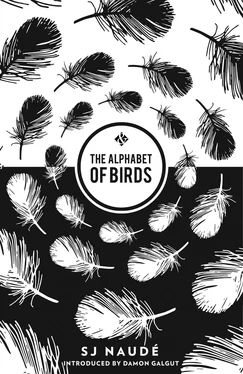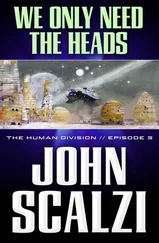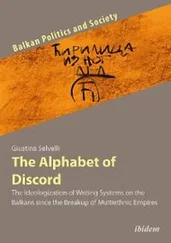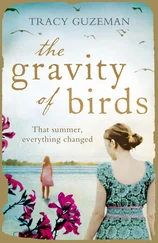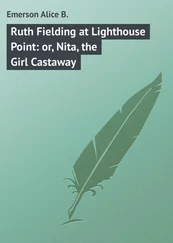Later, Joschka comes and lies down too. He tells Joschka the news about his mother while looking up at the ceiling. He does it reluctantly. It feels wrong given their newfound strangeness towards each other, but there is no one else to share it with. Joschka is quiet for a long time.
‘I would be lying if I said I know how it feels. As far as I’m concerned, my mother has been dead for a long time. I don’t remember.’
He catches an early-morning train to Nuremberg. First he visits the clinic, then gets a taxi to the airport. From there he will fly to Frankfurt, where he will wait a few hours for the evening flight to South Africa that he booked the previous night.
He is waiting to board in Nuremberg airport. The airport building displays the kind of watered-down architectural modernism that has become the common denominator of airports everywhere in the West: row upon row of structural glass plates in a steel frame. One could be anywhere in the extra-sylvan world, in the Vierte Reich. And yet, in the distance beyond the runway, the hills are briefly visible, and the dark green of pine forests, before the fog closes in.
He has a box of biscuits with him, German biscuits that Joschka baked and shoved in his hands when he left. He just looked at it without saying anything.
‘Let me know when you’re coming back to London,’ Joschka said, eyes still avoiding his own. Joschka’s hand is burrowing into his, like a small forest creature in distress.
We return to where we started, the nude scene in the bathroom. As mentioned, neither he nor his mother says a word about it. It is as if it never happened. Something has changed, though, something has become raw. The breach between now and then, the time of innocence, has been brought into sharper focus. Or maybe he is imagining things; maybe it was nothing more than it was.
When he arrived in South Africa a month ago, he made a call to London and resigned from his job. It was long overdue. His former assistant packed up his office, shipped the boxes. He asked a friend to empty out his flat and let it out. He did not say goodbye to anyone in London, gave no one his new telephone number or his parents’ address.
The rhythms of his mother’s illness catch his mother and everyone around her unawares. For a few weeks, she looks better than ever, radiating inner light. One could imagine the diagnosis was a mistake. Then the decline follows, much faster than predicted. It progresses with such speed that one cannot keep up. Soon she has intense pain. Accompanying the pain is protest, refusal. She declines pain medication. She wants to maintain control. (‘I want to know what’s going on in my body. Want to be all there when it all happens.’) Her condition changes daily, there are new kinds of pain, pains she cannot describe.
The more she becomes lost in thought, and the worse the pain, the more she does. She gets up and cooks on a large scale. She is waging a war on the scattering growths inside her. She’ll show the pain. For hours on end, she cooks and bakes, as if determined to fill a freezer from which everyone whom she has ever loved can eat for the rest of their lives. She cleans the floors, dusts, polishes windows and prunes potted plants so that no one else will ever have to do it again. She drives off to buy clothing for his father, bringing back pullovers and thick socks for him too, for all his future winters in the north. Everything will be clean, everyone will be warm and fed and cared for. So it will be. For ever and ever. (Amen.)
Later, still without painkillers, she is lying, motionless, amidst the regularity of domestic sounds: the drone of the fridge, the ticking of clocks. When one enquires cautiously, she insists there is no pain. Judging by how serenely she is lying there, one could almost believe it. But now and then something travels dimly through her eyes. She talks about taking a trip to the farm with him. She wants to show him the grafted crabapple tree, wants to see for herself how it is growing. Wants to sit in the sandstone pergola again. She is sure she can do it; they can stack a pile of cushions in the back of the car. His father must come too. He nods, but he knows it is not possible, knows it will never happen.
One evening he brings her back from the hospital after she has undergone a procedure. An attempt at brief relief — in the intestines of this most unembittered woman, the bile had dammed up to bursting point and required surgical drainage. She is sore. They drive through wet streets and he tries to understand the nature of pain. It is a strange evening. It has rained unnaturally heavily. It has stopped now, but the idea of rain hovers in the dark. The pain makes his mother speechless. It is a blade cutting them from each other, a presence in the car that dominates them in different ways, makes them absent from each other. In himself there is an echo of her pain, black and shiny and enormous and soundless. But it is not pain itself. Outside there are so many lights: street lamps, houses, cars, shopping centres. It surprises him how powerless all the bulbs are against the dark, how little they infringe on it. He looks at her: she is blind and frozen. The pain inside her is a strange country, an impenetrable language. Not a Germanic language barked in a menacing voice, but a set of soundless signs. Like aleph, the unvoiced Hebrew consonant. Or what one hears when the birds fall silent.
It is during this time that he gets such an unprotected view of his mother in the bathroom. The retina will not let go of the image, he realises after a while. It stays with him. He wonders what it means, the lingering. Yes, it does carry something in it of then and now , the man before and after the event. How he is to construe the respective selves, however, he will never know. But he knows it is a dividing line, a flash of light in the blindness of which all protection is torn away. And it superimposes her body indelibly over his German trip, a defenceless landscape on the edge of collapse. It is also on one of these mornings that she gets up and walks out into the garden. She takes the spade from the gardener. He stands back slowly, respectfully. His forehead is shiny, he has taken off his woolly hat and is turning it around and around in his hands. She puts a foot on the spade, pushing it into the soil. The man’s eyes are turned downwards. She totters. The gardener steps forward, gently adds his own foot. Together they manage to turn over a sod. On the underside earthworms teem and twist.
‘At least one spadeful,’ she says with rasping breath when she sinks into the sofa. Perhaps she wants to dig her own grave, one sod per day.
‘You can bring it now,’ she says. ‘Administer the oblivion.’
He helps her into bed, lifts her feet gently onto the sheet. He covers her lightly with an angora blanket. She surrenders, accepts the morphine. In the coming days, she insists on increasing doses, much more than prescribed.
The care becomes exhausting. He and his father take turns with the night shift. By his mother’s bedside he searches inside himself for all the tenderness he possesses. Nothing is kept in reserve.
During the first week or three he and Joschka occasionally exchanged emails. But Joschka and the entire northern world — London, Berlin, Nuremberg, the castle above the valley — feel so utterly removed from this strange continent. From this place of his childhood that has nothing to do with him, that never really left traces on his consciousness. Their electronic epistles are devoid of substance, impart no concrete news. They are stiff and unnatural — nothing feels the same from here. The menace of his mother’s illness dominates his thoughts, so that the events around Joschka in the previous months look increasingly distant and implausible, like something remembered from a story. The emails start trailing off. In his state of intensified emotion, while his mother is sunk so deep into her pillow, he does, nevertheless, write to Joschka again one night. Lack of sleep has made him scratchy behind the eyes.
Читать дальше
